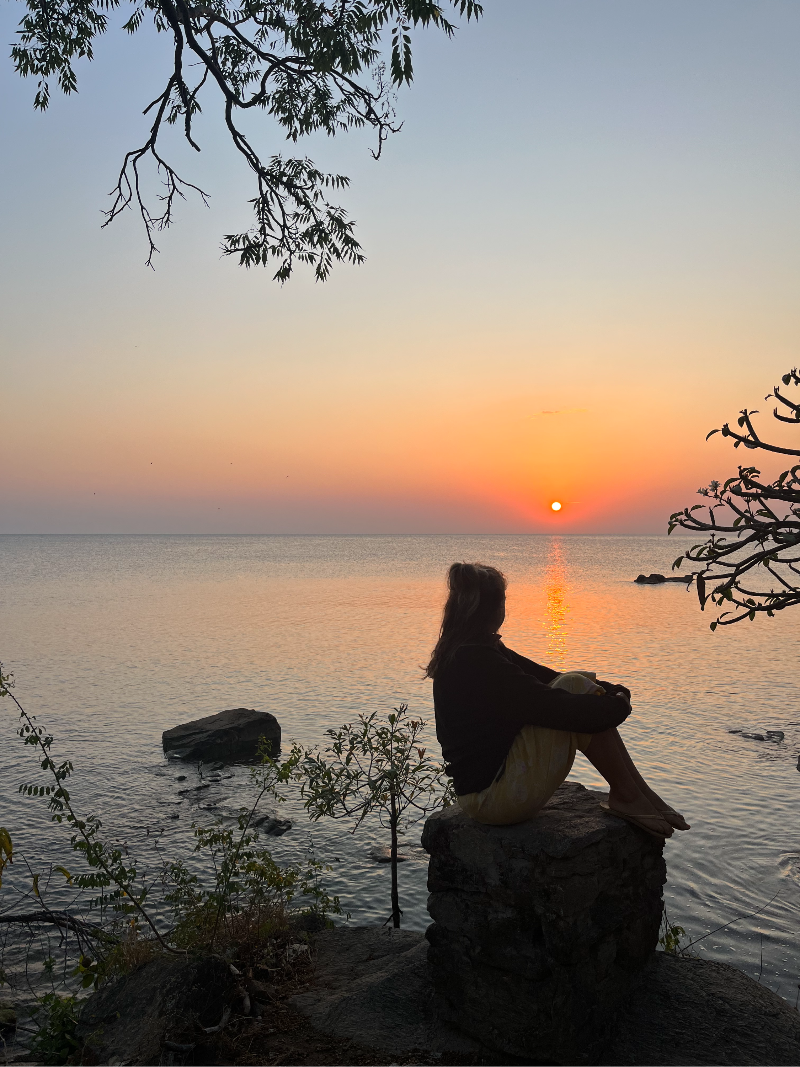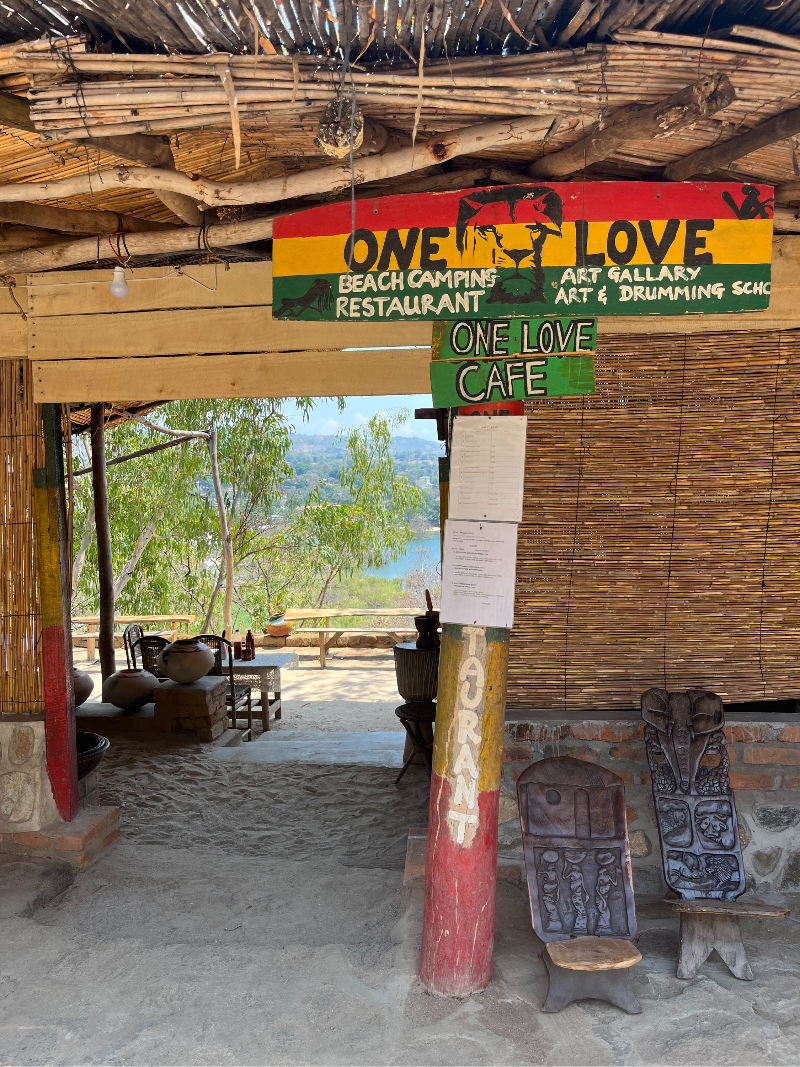A Backpacker's Guide to Northern Malawi
- IDreamofMangoes

- Feb 8, 2024
- 8 min read
Updated: Jan 11
In this backpacker's guide to northern Malawi, I will tell you everything you need to know to plan your trip to one of my favourite countries in the world!
Malawi is known as 'The Warm Heart of Africa' - and if you add Malawi to your Africa itinerary, you'll immediately realise this affectionate name is very well-deserved.
CONTENTS

This post may contain affiliate links, which means I may get a commission if you make a purchase through this website, at no cost to you. I only link to products I use and love.
About Malawi
Malawi is a small, land-locked country nestled between Mozambique, Tanzania, and Zambia in southern Africa. It is one of the world's least developed countries, and you will definitely notice a difference in the infrastructure if you pass in from Tanzania by land - like we did.
Only 20% of the population is on the payroll, as most Malawians are subsistence farmers living below the poverty line. Even though the land is rich and fertile, the agricultural system favours large estate owners, mostly growing tea, tobacco, and maize (all three are horrible for the ecosystem), and most of the local people remain very poor.
Despite their obvious hardships, I found the people of Malawi to be extremely friendly and welcoming, and the hassles and scamming to be far less than neighbouring Tanzania.
The landscape of Malawi is beautiful! Rolling highlands, forests, mountains, and of course Lake Malawi, which may as well be the ocean, it's so big (and deep!)

For travel insurance for Malawi, I have put my trust in Safety Wing, and I use their 4-week rolling policy as it is affordable and covers almost every country. They have been great so far!
Language, Currency & Visas in Malawi
Malawi achieved independence from Britain in 1964, but English is still the official language, alongside Chichewa. The currency is Malawian Kwacha (mwk), and at the time of writing, 1000mwk is 50p.
The Malawian Kwacha is quite unstable and prone to fluctuate dramatically, and you will get a MUCH better rate if you bring US Dollars in cash and exchange them with a small money-changer.
As of Feb 2024, citizens from the UK + 78 other countries no longer need a visa to enter Malawi. Initially, you can stay in Malawi for 30 days, and you can extend this twice until you reach the maximum of 90 days.
You may still be asked to show your Yellow Fever Vaccination Booklet on arrival.

Not sure what to pack for your trip to Malawi? Check out my article:
How to Get to Malawi
If you are flying in, you will likely land at Lilongwe Airport in central Malawi. Lilongwe is the tiniest capital city I have ever seen, with not a high-rise in sight.
You may instead choose to cross into Malawi by land which is fairly straight-forward from both Zambia and Tanzania. I have heard the land crossings to and from Mozambique are a little more sketchy, in terms of road quality on the Moz side.
If you would like to know more about crossing by land from Tanzania, check out my post: A step-by-step guide to using the Songwe Border Post.

RELATED POST: A 2-Week Namibia Road Trip Itinerary & Budget |
|---|
How to Get Around Malawi
There are only a few main roads throughout the country, and they are all heavily monitored by Malawian police. If you are travelling by public transport you will be stopped at a police checkpoint every 15 minutes or so, but the interactions with the police are normally pleasant and brief.
There is currently a HUGE petrol shortage - due to the Malawian Government having a lack of foreign currency. This means queues to get fuel can be hours long, transport prices are inflated (they are expensive anyway), and you are prohibited from taking US Dollars out of the country (we did not get searched, just be careful, tampons are a good money-hiding place!)
To get around, you can self-drive or take public transport. As we are backpackers in Malawi, we opted for the latter, with a mixture of bike taxis, minibuses, and big buses. For an example of public transport prices in October 2023, a minibus journey from Mzuzu to Karonga (4 hours) is 10,000mwk (£7). This is about 5 times more than Kenya!
Can you imagine what it's like for local people, most of whom would never be able to get the money together for a trip on public transport, and are therefore confined to their villages? I like to think about that when I am squished into a stress position in a 14-seater minivan with 21 people crammed inside, 'I am lucky to be here-I am lucky to be here...'
Even with the ongoing fuel crisis, moving around with public transport is easy, despite what you may hear. Apart from everything taking an age, we had no issues, and we were rarely quoted an inflated Mzungu price (which was nice for once!)
On that note, for long journeys, you will want to stock up on Mandazi (doughnuts) and Samosas. They are 100mwk (7p) each, no matter what you are told!
There are also no pee breaks - so my normal technique is to sparingly sip a small bottle of water mixed with an electrolyte sachet for the whole day, and then when at my destination slowly rehydrate with 3-4 litres of water. It's not the most healthy situation, but it beats bumping around in a minivan all day with a full bladder.
As a female, there are also periods to consider when making these long uncomfortable journeys, so to read more on that, check out my post: Backpacking on your Period.

Our Northern Malawi Itinerary
Livingstonia (11 days) – Nkhata Bay (5 days) – Mzuzu (2 days) – Lilongwe (1 day)
We came from Tanzania via the Songwe Border Crossing, and we left for Zambia through the Mchinji Border Post.
For our time in Livingstonia - we stayed at the amazing Mushroom Farm. This place is quite legendary in these parts and we could immediately see why, the location is stunning, high up on the mountain overlooking Lake Malawi, and they cater to all budgets.
We were able to pitch our tent, purchase some firewood to cook our food, and still enjoy all of the activities they offered. When Joe and I open our own place we will be taking a lot of inspiration from here!
Mushroom Farm, pitching our own tent: 6000mwk ($6) per person, per night.
[Our tent is the Robens Boulder 3 - which we love! It is super-easy to assemble, reliable in all weather, and only weighs 3kg.]

In Nkhata Bay there are three well-known hostels; Mayoka Village, Butterfly Space, and the newly opened Soul Rebel. We visited all three and we found Soul Rebel to have the best hospitality and the best food.
They have beautiful dorms right by the water and as of this month, Starlink Wifi! This is one of the few places in Malawi where you will find good internet, just a heads up! (EDIT - As of Jan 2024, Mushroom Farm also has Starlink!)
SoulRebel, Dormitory: $12USD per person, per night.

In Mzuzu we stayed at Macondo Camp, as we heard they served amazing Italian food. The camp itself was very beautiful and each tent pitch had a charging station and a table and chairs. The Italian food was fine, but extremely overpriced, at like $15 a plate!
Macondo Camp, pitching our own tent: $10USD per person, per night.

In Lilongwe, we chose the cheapest place we could find, Vincent's Place, on Airbnb. This was actually really nice and a steal at $9 per night. Vincent was kind enough to help us plan our 6-leg onward journey via minibus to South Luangwa NP in Zambia.
RELATED POST: 10 Things to Do Near Livingstonia, Malawi |
|---|
Things to Do in Northern Malawi
Livingstonia Area
Hike to Manchewe waterfalls
Visit the beautiful Yewo jewellery workshop
Indulge in a massage at Mushroom Farm
Hike to Chombe Plataeu
Visit a coffee plantation and make your own coffee
Do the multi-day trek to Nyika Plateau and stay at Chelinda Camp
Make use of the games room and library at Mushroom Farm
5-day permaculture course at Mushroom Farm (this was exceptional!)

Nkhata Bay Area
Paddleboarding in Lake Malawi
Spend the day lazing on Kande Beach
Scuba diving or snorkelling in Lake Malawi
Cooking classes at Soul Rebel
Sample the amazing banana pancakes at One Love Cafe

Mzuzu Area
Take a trip to a local Cannabis plantation, and sample their famous local strain: Malawi Gold. This is easy to arrange but needs to be planned with some discretion.
Hike in the Viphya Mountains.
We would love to come back to Malawi and visit the southern region, maybe next time after the rainy season! We have heard great things about Zomba and Mulanje.
Seasons of Malawi
May – October: Cool + Dry
November – April: Hot + Wet
This is a very rough estimation. When we visited in October it was an extreme heat wave, with temperatures reaching 40C. I have heard the nicest months are May and June - when it's cooler and everything is green and lush after the rains.

Other Reasons I Love Malawi
Joe and I really loved our time in Malawi. Lots of people tend to skip over this country when overlanding in southern Africa, due to rumours of it being difficult to travel. On the contrary, we actually found it very easy.
On another note; Malawi is very welcoming to backpackers. In some other countries, we find that they gear everything towards high-end tourists and try to price out people who are travelling on a budget, but we did not get that vibe in Malawi at all.
Malawi is known as 'the warm heart of Africa' and we really felt it. The spirit of the people moved us in so many ways - we made so many genuine connections and now have a huge admiration for them. The future feels full of promise here, and we will definitely be back.

Thank you for reading my backpacker's guide to Northern Malawi.
If you enjoyed the read, please consider subscribing to my blog where I post articles once every 1-2 weeks about my current travels!
If you're looking for more Africa inspiration, check out my article: My time with the Maasai. Wondering how to prepare for a backpacking trip to Africa? See my post: A packing list for backpacking the African continent.
As usual, please get in touch if you have any specific travel questions, I will always reply.
Happy Travels
xx
































Comments